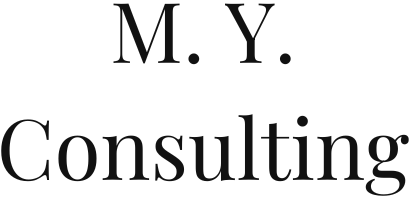I recently started training new language teachers. This experience has prompted me to write this blog article on being a better language teacher, but also, on how to be a better worker as a service consultant too.
But, then I realized that this also applies to consultants in the business world. I use the same tips as a marketing consultant for my clients.
Send me a note on what you think about these tips and if they have helped you improve being a teacher of language or as a consultant!
In this article, I mention client- a client is both a business client as well as a language student. Both are paying you for your services.
Physically Engage with Your Client
As a language teacher, the best help you can give your student is to act out what you are saying as much as possible. Wave your hands around, move your arms, and stand up. Do as much body language as you can.
I know some cultures are not body language focused, but if you think you are doing enough, do more. The goal is to feel ridiculous because that WILL help your client learn.
For business clients, you don’t necessarily want to be running around, but showing “open” body language and pointing to relative information is helpful. Share your screen and circle different things on your screen that can help them understand what you are working on.
Don’t sit with your arms crossed while slouching. Sit up straight with a smile on your face. If your client thinks you are unhappy, that energy will transfer over to them.
Keep the mood light and positive. This can 100% help you be a better worker.
Use simpler grammar than you think is necessary
For both types of clients, you are the expert. That is why they hired you. Make sure to keep sentences and concepts simple.
I have two examples of ways to be a better worker:
Language Student:
For a language student, the teacher I was training used conditional grammar, which is an intermediate level or advanced level. The student was a beginner. “Would you want…”
I told her that it was better to say “Do you want..” The “would” is too complicated and the student was confused by it.
Business Client:
I was talking with a client about her website. I mentioned that there is “custom code.”
She sent me a long email explaining that she had no idea what “custom code” meant and to speak in plain English.
It was surprising to me because I thought “code” was common knowledge, as a vocab word. From then on, I assume my clients don’t know these “common” vocab because that is why they hired me.

Have them talk about themselves
With any good relationships, if you always talk about yourself, people won’t want to be with you.
It needs to be a give and take in order to be a better worker.
This tip is more important for language students than business clients, but both need to talk about themselves more than you talking about yourself.
For language clients, they need to practice talking in that language. For business clients, they need to explain their project and what they want to be done.
Take lessons to help you help your clients
For language clients, it will help you become a better teacher if you, yourself, have taken language classes. You will know what it is like to be in the student chair. You will develop what you like and don’t like in a teacher.
AND, hopefully, not incorporate the things you don’t like in your own teachings.
For business clients, get a basic understanding of what they do. For example, I have a client who is a coach for other cleaning businesses. The piece of advice I would give myself would be to read more about cleaning tools and supplies to better understand what I am marketing.
This way, you will be sure of the things you post and won’t post something that is not related at all!
Have them do as less work as possible (in regards to technology)
For both types of clients, expect them to do as least amount of things in regards to technology as possible.
- Share your own screen during calls.
- Send loom videos or other screen capture videos to explain steps.
- Send screenshots with important information circled.
Don’t expect your client to do any extra work OR don’t expect them to have the knowledge to do it in the first place!
Do not ask: “Do you understand,” Ask: “Explain [word/phrase] to me.”
This is more geared to language students. It is easy for someone to say “Yes” to “Do you understand?” When, in fact, they don’t understand.
If you have the client explain the concept to you, then you will know for sure if they understand.
For business clients, make this about you. Summarize your understanding to make sure you understand exactly what they are looking for:
“So, to clarify, you want…..”
This gives them a chance to correct you so you can do the project correctly and efficiently.
Summary
I have learned these tips the hard way – by trial and error. Many lessons are learned by doing the “mistake.” But as long as we learn and improve from them, they are all learning experiences. I do hope these tips will help you avoid some “mistakes.”
What are your thoughts about these tips? Do you do them? Will you start? Do you have more tips you would like to share to help others grow? Send me an email!
Be sure to sign-up for Build a Business eCourse that covers different aspects of starting your own business so you can have your own teaching or service based business today!

